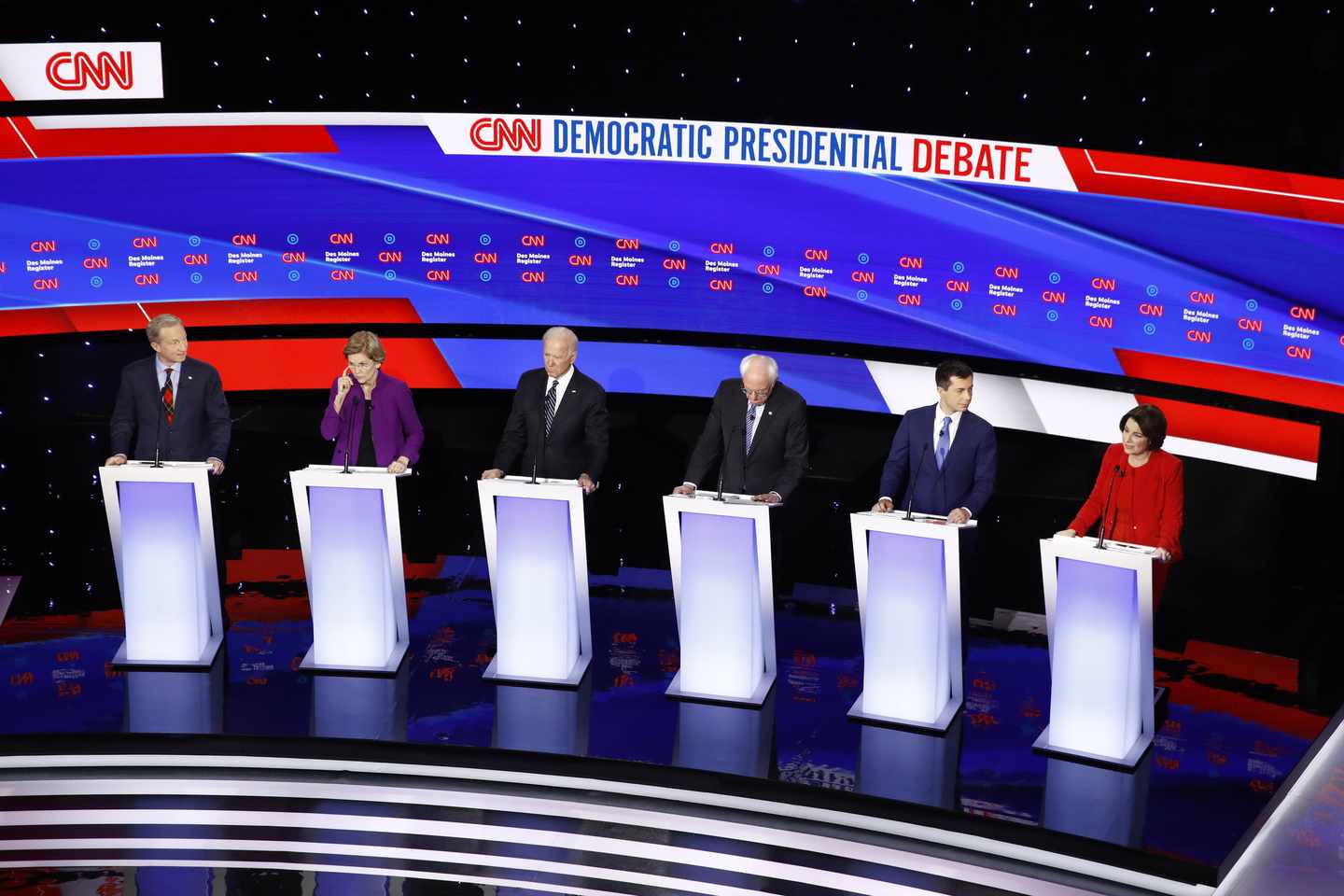Can Any of These Candidates Win the Democratic Nomination?
January 24, 2020#election2020 #JoeBiden #BernieSanders #ElizabethWarren #Democraticpresidentialcandidates #AmyKlobuchar #PeteButtigieg #MichaelBloomberg

We are fast approaching the stretch run of the Democratic nomination contest, with just over a week to go until Iowans vote. At this point, things can happen quickly, as candidates catch fire or peter out. The difficulty of polling the caucuses compounds this issue, as pollsters try to estimate a relatively select electorate in a state where you can register to vote on Election Day.
Looking over the field of (loosely) six viable candidates, it’s a lot easier to make arguments for why each can’t be the nominee than why each can.
Amy Klobuchar: Klobuchar’s best shot at becoming the nominee probably evaporated after the last Democratic debate. Her storyline was straightforward: She was a moderately liberal female senator from a swing area of the country. In a year where Democratic voters claimed that beating Donald Trump was the most important factor in their voting, she seemed well poised to become the establishment pick, especially if Joe Biden faltered.
It hasn’t turned out that way. Biden has proved remarkably resilient, and while Klobuchar had some credible debate performances as she got more questions on the stage, and her position in the polls has improved, that improvement hasn’t been enough to put her on a trajectory to win Iowa and eventually secure the nomination. Perhaps she manages to come in third or fourth, and can translate that into a Rubio-2016-win-by-placing-third storyline, but that isn’t what things are looking like right now.
Michael Bloomberg: I made the case for Bloomberg previously, and continue to believe that he is running the best campaign that Michael Bloomberg can run. He’s getting some traction in the national polls, and if Biden stumbles in Iowa and Bernie Sanders looms large, the former New York mayor could quickly become a player.
At the same time, things really have to align for him for that to happen. Sanders probably needs to roll through the early states, and Biden has to limp out of South Carolina badly damaged. Democrats will also have to decide that they’re fine with a billionaire who was elected as a Republican, who endorsed George W. Bush in 2004, and who oversaw stop-and-frisk. Needless to say, he doesn’t fit the zeitgeist.
Pete Buttigieg: The Butti-bounce seems to be over. After leading by almost six points in Iowa in early December, Mayor Pete is now in fourth place, with a downward trajectory. It isn’t inconceivable that he could rally – again, the difference between first and fourth is well within the traditional polling error in Iowa, but it seems unlikely. Even if he does, he is currently in fifth place in South Carolina, behind Tom Steyer. His weakness in the South becomes a real liability in a fight against Biden down the stretch.
Elizabeth Warren: For a while, Warren looked like she might be on Kamala Harris’ decline to irrelevance, but she actually seems to have stabilized around 15% nationally. She’s now back in third place in Iowa, and is only four points out of first. She isn’t really out of contention right now.
At the same time, her post-Iowa polling is in pretty dire shape: fourth place in New Hampshire, third place in Nevada, and third place in South Carolina. Of course, Warren would presumably get a bounce if she wins Iowa, but it might not be enough.
Bernie Sanders: Sanders seems to be surging, but the reality check looms: Even if he sweeps the first three states, he is likely to get trounced in South Carolina and will have a difficult time in other Southern states. He could sweep Super Tuesday in the North and win California, perhaps with an assist from Bloomberg, but still find himself trailing in delegates.
More importantly, he is likely to face a full-throated attack from the Democratic establishment and (perhaps more importantly) center-left media outlets if he looks to be on track to become the nominee. He was treated with relative kid gloves by Hillary Clinton in 2016, but if he is a genuine contender, many Democrats will work tirelessly to defeat him, or at least to throw the election to the convention. This dynamic would have mattered more 20 years ago, when the party and media had stronger gatekeeping functions, but it will still matter.
Joe Biden: I had assumed that Biden would play the role of Jeb Bush in the 2016 Republican Party: The establishment candidate no one really wanted. He has held up surprisingly well, and the better argument now is probably that he is Mitt Romney in 2012: The stable candidate who wins after the party “tries out” a bunch of alternatives that can’t work.
We should remember, though, that Romney’s opponents – Herman Cain, Rick Santorum, and Newt Gingrich – weren’t as strong as Elizabeth Warren or Bernie Sanders. They began as relative unknowns, unlike the current crop of Democrats, who all have genuine bases of support within the party. Can a Democrat whom everyone seems lukewarm about really knock out all of these other candidates? Perhaps. But this also seems like a recipe for underperforming polls in the caucus states, Biden losing the first three contests and limping out of South Carolina with a fresh Bloomberg awaiting.
So who will win? It really is anyone’s ballgame at this point. Maybe Biden is the strongest bet right now. But since all of the candidates’ paths to victory are fairly tenuous, no one should be anywhere near 50%, much less above it.
Source: https://www.realclearpolitics.com/

